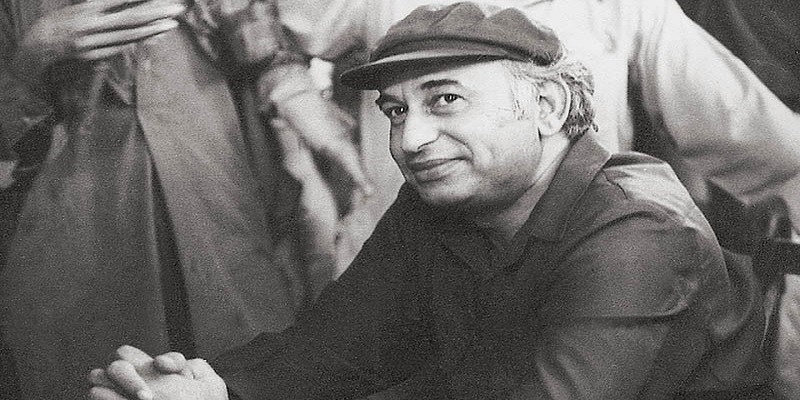Bhutto's Nuclear Pursuit: Shaping Pakistan's Security Paradigm
The nuclear program initiated by Zulfikar Ali Bhutto, the former Prime Minister of Pakistan, holds significant historical and geopolitical importance. Bhutto, who assumed office in 1971, inherited a country that had just experienced the traumatic separation of East and West Pakistan, leading to the creation of Bangladesh. Faced with regional instability and a perceived threat from India, Bhutto made the strategic decision to pursue a nuclear weapons program to ensure Pakistan's security. This decision set the stage for a complex and controversial journey that continues to impact the region today.
Bhutto's motivation to develop nuclear capabilities stemmed from multiple factors. The most pressing concern was the military imbalance with India, Pakistan's longstanding rival. The defeat in the 1971 war and the subsequent loss of East Pakistan intensified Bhutto's determination to bolster Pakistan's defense capabilities. The development of nuclear weapons was seen as a means to establish a credible deterrent against potential aggression from India. Additionally, Bhutto sought to secure Pakistan's status as a major player in the Muslim world, asserting its sovereignty and independence.
In January 1972, Bhutto publicly articulated Pakistan's intention to develop nuclear weapons, famously declaring that Pakistanis "will eat grass, even go hungry, but we will get one of our own (nuclear bomb)." This statement reflected the gravity with which Bhutto approached the nuclear issue, emphasizing its importance to Pakistan's national security.
To oversee the nuclear program, Bhutto appointed Dr. Abdul Qadeer Khan, a metallurgist with experience in Europe and a fervent patriot. Dr. Khan played a pivotal role in establishing the foundation for Pakistan's nuclear program. The early years were marked by a lack of resources, with Pakistan facing economic challenges exacerbated by the aftermath of the 1971 war. Despite these constraints, Bhutto remained committed to the nuclear cause, allocating funds and resources to the program.
The international context of the 1970s added another layer of complexity to Pakistan's nuclear pursuit. The signing of the Treaty on the Non-Proliferation of Nuclear Weapons (NPT) in 1968 and its entry into force in 1970 created a global framework to prevent the spread of nuclear weapons. India, Pakistan, and Israel, however, chose not to sign the treaty, opting to pursue their nuclear programs outside the established non-proliferation regime.
Bhutto skillfully navigated the international landscape, seeking support for Pakistan's nuclear ambitions while maintaining a degree of ambiguity about the actual progress of the program. The 1974 Indian nuclear test, codenamed "Smiling Buddha," heightened security concerns in Pakistan and further fueled Bhutto's determination to expedite the nuclear program. The Indian test served as a catalyst, galvanizing efforts to accelerate Pakistan's nuclear capabilities.
By the late 1970s, reports suggested that Pakistan had made significant strides in its nuclear program. The clandestine nature of the project made it difficult for the international community to ascertain the exact status of Pakistan's nuclear capabilities. Concerns grew, and pressure mounted on Pakistan to abandon its nuclear ambitions. Bhutto, however, remained steadfast, asserting Pakistan's right to develop nuclear weapons for self-defense.
The political landscape in Pakistan underwent a dramatic shift in 1977 when Bhutto's government was overthrown in a military coup led by General Muhammad Zia-ul-Haq. Bhutto was subsequently arrested and charged with conspiracy to commit murder. Despite the political turmoil, the nuclear program continued to progress under Zia's regime. The military government affirmed its commitment to the development of nuclear weapons, and Dr. Abdul Qadeer Khan continued to play a key role in advancing the program.
In 1983, Pakistan conducted a series of cold tests, signaling a significant advancement in its nuclear capabilities. The international community, particularly the United States, responded with increased scrutiny and condemnation. The U.S. Congress, concerned about the proliferation of nuclear weapons, imposed sanctions on Pakistan, cutting off military and economic aid. However, Pakistan's strategic importance, particularly in the context of the Soviet-Afghan War, led to a pragmatic shift in U.S. policy, and the sanctions were lifted in the mid-1980s.
The completion of Pakistan's nuclear weapons program culminated in a series of nuclear tests in May 1998, just weeks after India conducted its own tests. The tests were met with international condemnation, but they solidified Pakistan's status as a nuclear-armed state. The nuclear tests of 1998 marked a turning point in the regional security dynamics, introducing a nuclear deterrent that has shaped the strategic calculus between India and Pakistan ever since.
Bhutto's nuclear program was a response to the perceived security threats facing Pakistan, particularly from India. The program was initiated in a challenging economic and geopolitical context, marked by regional conflicts and international efforts to curb the spread of nuclear weapons. Bhutto's determination to pursue nuclear weapons for self-defense, even at the cost of economic hardships, set the stage for Pakistan's eventual emergence as a nuclear-armed state. The legacy of Bhutto's nuclear program continues to influence South Asian geopolitics, contributing to a delicate balance of power in the region.

